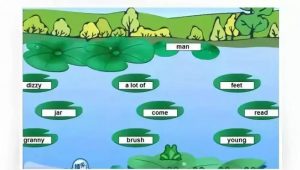According to the Flexible learning for open education (FLOE) Project website, I have some new understandings of online learning. For me, the most important issue of online learning is how to maximize learning outcomes. This website provides me some good ideas.
The first concept I would like to talk about is how to solve learner’s barriers while they are learning online. As the author of the website mentioned that all learners might meet barriers such as a certain learning product that does not match learner’s needs, expectations, and the environment. For instance, when I study online, I watch a video about the Pythagorean theorem in a noisy coffee shop and I do not have a headphone with me. I could not learn anything because I could not hear anything from the video. At this moment, the capital caption can help me to learn in a noisy environment. We can expand this idea to more solutions to help learners learn online such as the website mentions: text to speech for blind people, font size adjustment for elderly people. These simple functions of online learning products can help learners boost better learning outcomes.

(picture from
https://pixabay.com/photos/business-desk-document-hand-1868015/)
Another important concept that comes to my mind is “co-creation”. What is “co-creation”? From my perspective, in this context, co-creation stands for multiple departments of people to develop a learning product together. As mentioned on the floe website, co-creation stands for instructors, content creators, and web developers to develop a learning product together. Co-creation is beneficial to learners because all contributors can give suggestions to make the learning product perfect to use. For instance, as I co-op at an IT company before, there is an important role called Program Manager. A program manager’s job is to co-create a product with developers and users. The co-created product can meet more learner’s needs.
The third concept I think it is interesting and useful is to embed learning into web games and simulators. It sounds very fun and interesting. This function can help learners engage in a learning program, especially for kids and younger learners. When I was a kid, there is a software on my computer to help me learn vocabularies. It was a game, I was a frog in that game and need to jump to a lotus leaf by typing the vocabularies on that leaf to go across the river. I memorized vocabulary very well because of that game. It is important to keep learners engaged and absorb knowledge without resistance.

(picture from https://www.sohu.com/a/259647064_739398)
There is a concept that I am confused about. The three dimensions of inclusive design part 3. It is about a complex adaptive system. This concept is very broad and complex.
The question I have about online learning is can reward mechanisms boost better learning out in online learning? As we have known, a reward can stimulate learner’s passion for learning. How can we make the reward system com true in online learning?